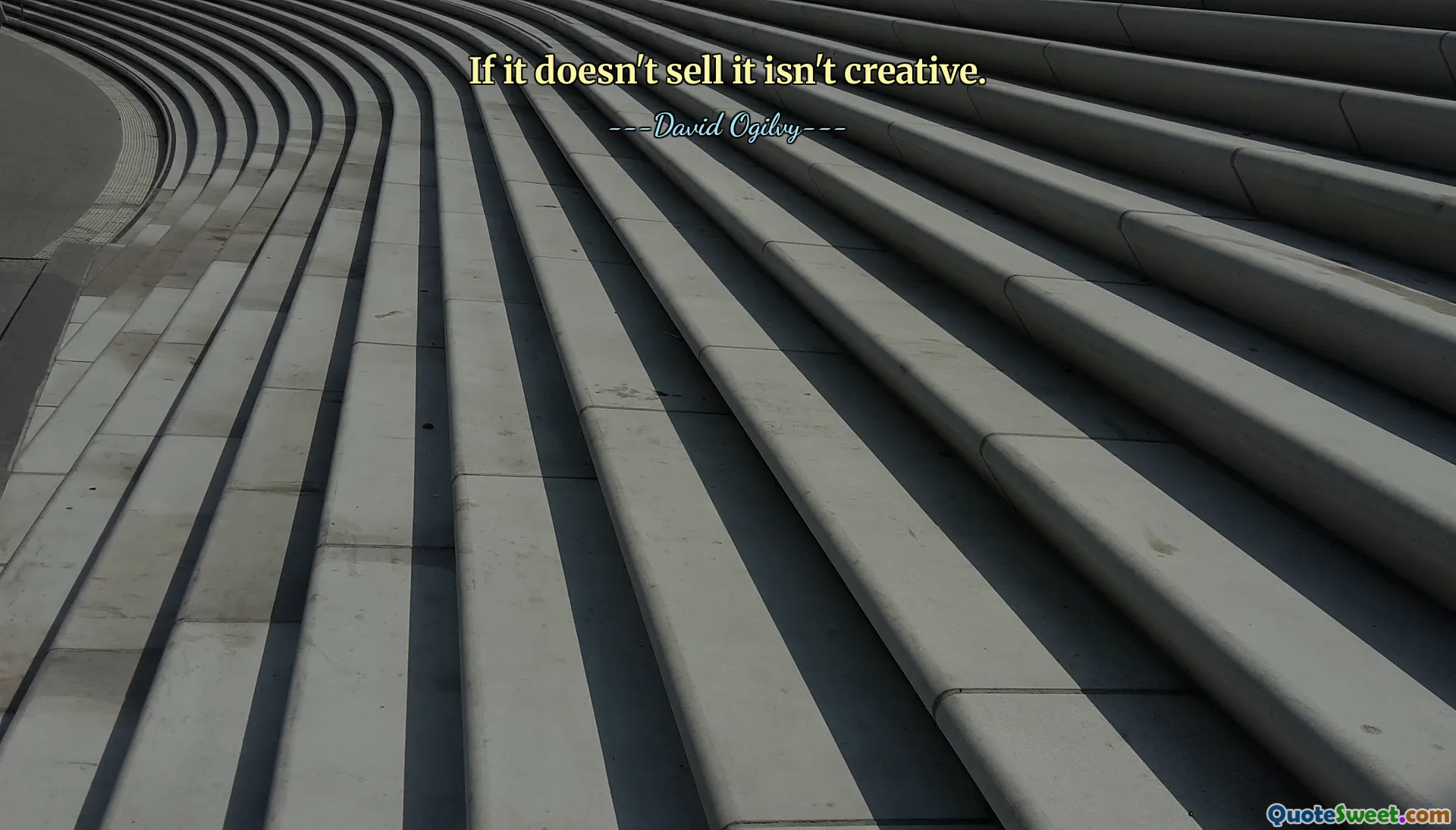
If it doesn't sell it isn't creative.
This quote emphasizes a pragmatic view of creativity, especially in fields like advertising, marketing, and business. Often, creativity is associated with originality, aesthetic appeal, and thinking outside the box. While these aspects are important, Ogilvy's perspective reminds us that the ultimate goal of creative efforts—particularly in commercial contexts—is to generate results, primarily sales and engagement. Creativity without tangible impact can be seen as superficial or merely artistic. In a world saturated with ideas, standing out isn't enough unless these ideas influence consumer behavior.
From a broader perspective, this quote challenges creators to consider the purpose behind their work. For example, an advertisement that is highly poetic or visually stunning but fails to motivate the audience to act or purchase misses its mark. Creativity must be aligned with clear objectives, whether they be sales, brand awareness, or influence in the marketplace. It's a call to balance artistic innovation with strategic effectiveness. In an era where brands are judged by measurable results, Ogilvy's insight encourages creators and marketers to focus on practical impact without sacrificing originality.
However, this viewpoint also prompts a reflection on the nature of creativity itself. Is it solely about profitability, or does it also encompass art, culture, and the enrichment of human experience? While these aspects are vital, in commercial contexts, the proof of effective creativity lies in its ability to connect with people in a way that drives action. Thus, creativity should not be divorced from its commercial purpose but integrated into it. This balance ensures that creative efforts resonate and succeed in tangible terms, proving that innovation and commerce can coexist harmoniously.
Ultimately, Ogilvy’s quote advocates for a disciplined approach to creativity—one that recognizes the importance of results and effectiveness as benchmarks of true creative success.





